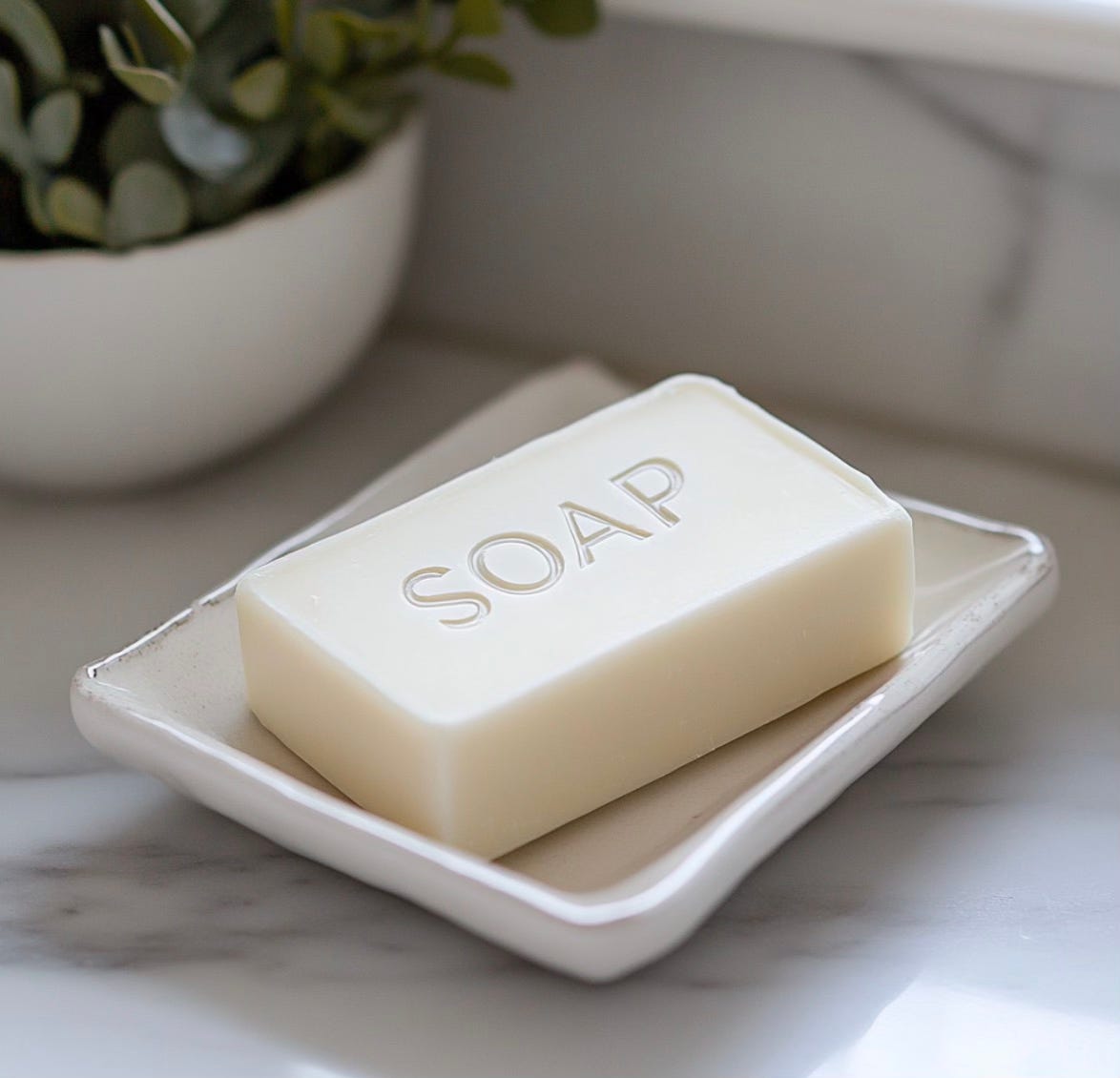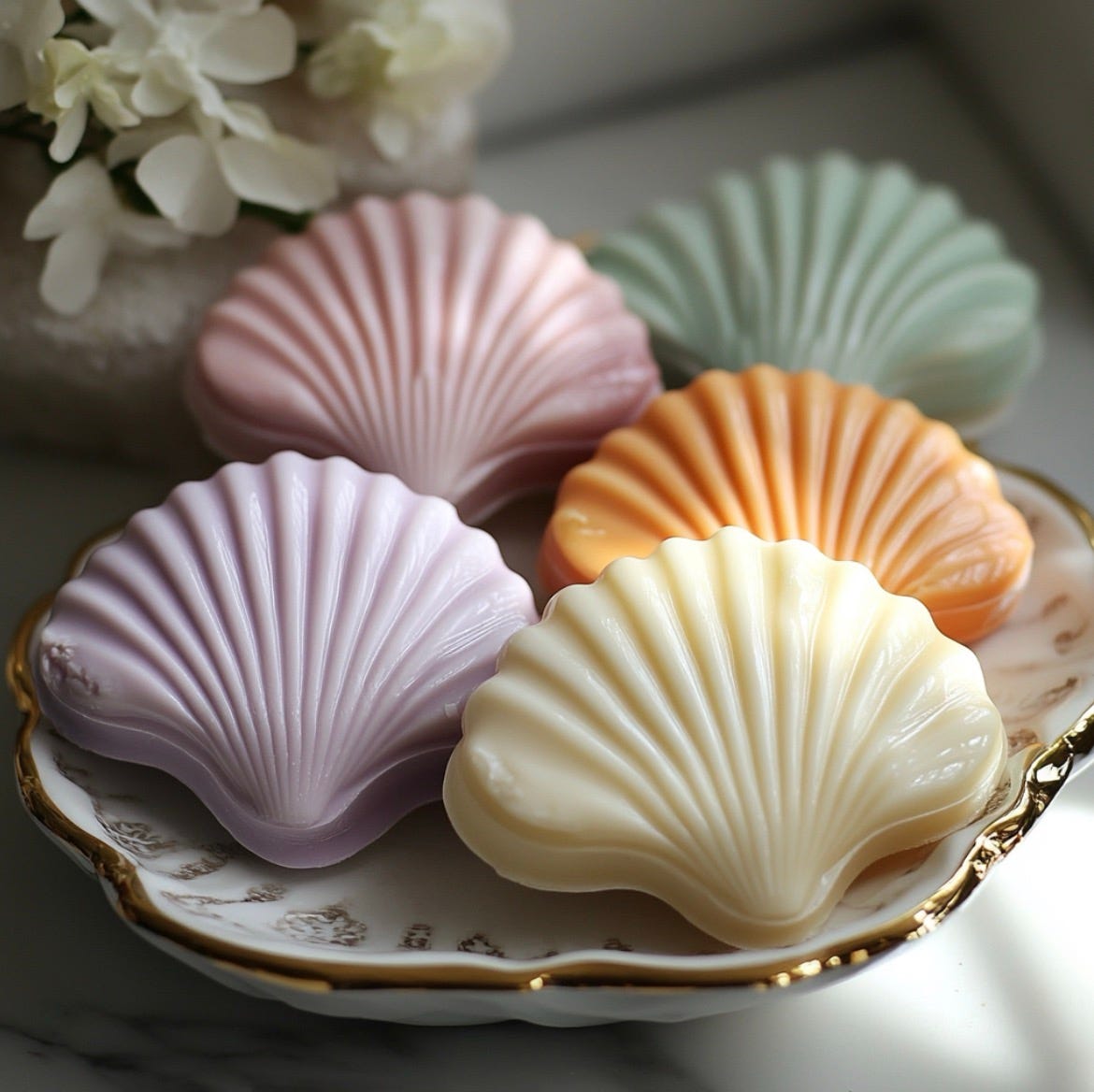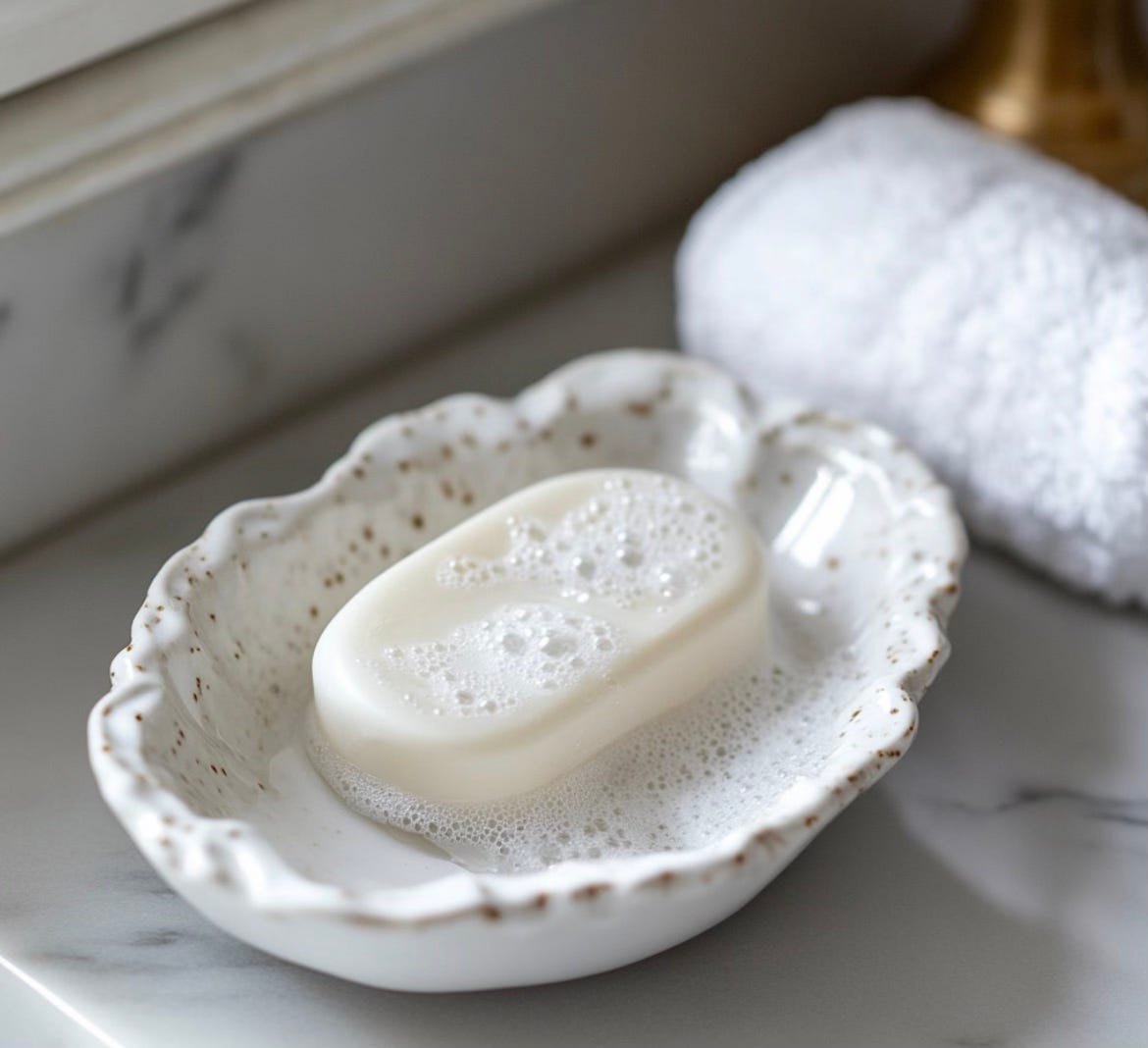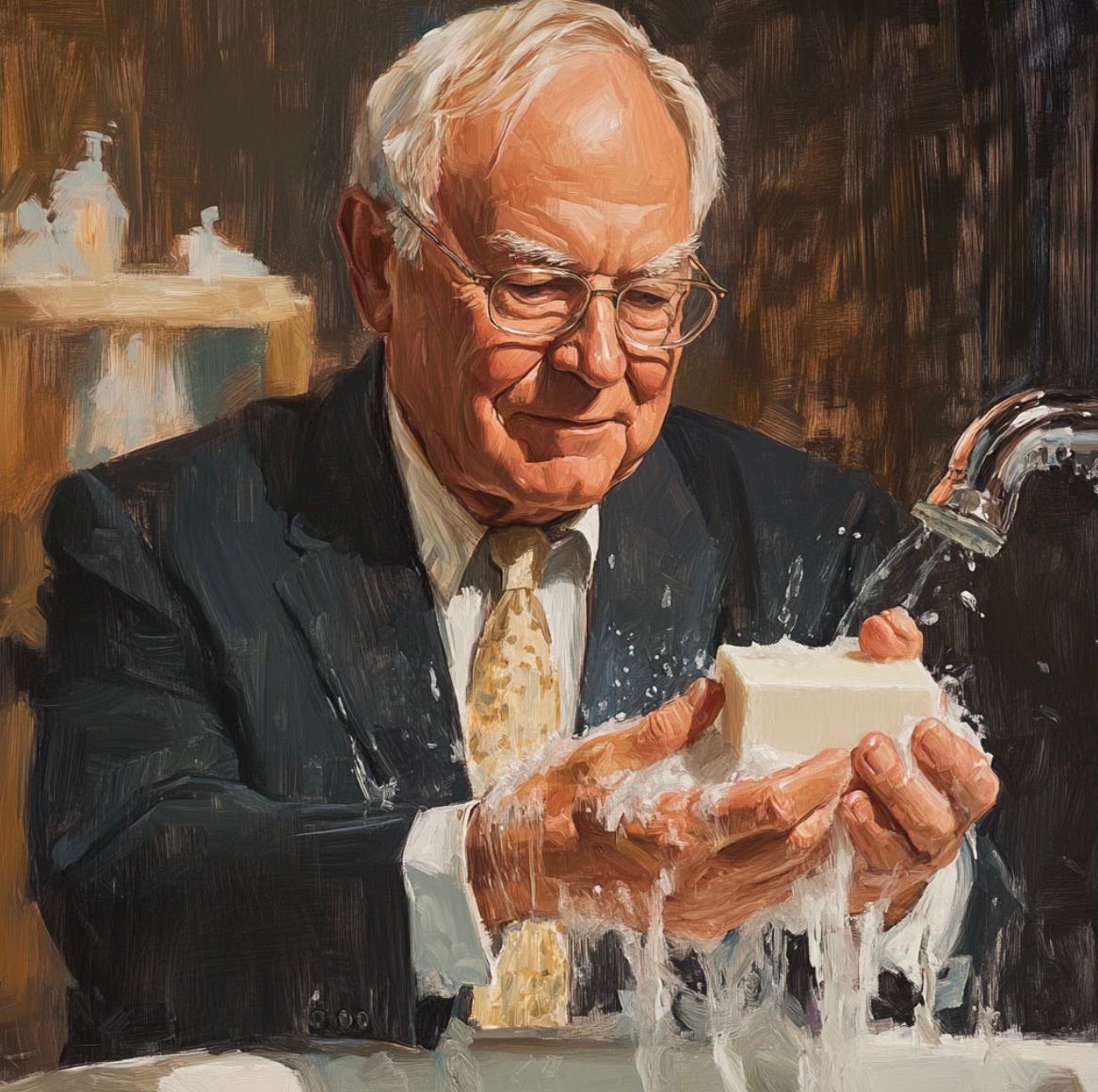Drop the practice and the soap
Win at meditation and investing by not trying too hard
I like to think of my portfolio as a bar of soap. A nice, plump, fresh-out-of-the-box bar that hasn't been worn down from cleaning countless hands. Maybe even one of those cheesy seashell-shaped soap bars that I encountered in bathrooms growing up in the 1980s. Meant to be looked at and not touched (and definitely not eaten, which I'll admit I was tempted to do as a kid).
In reality, my portfolio soap bar looks a little worn down. Maybe like this:
But it definitely doesn't look like this:
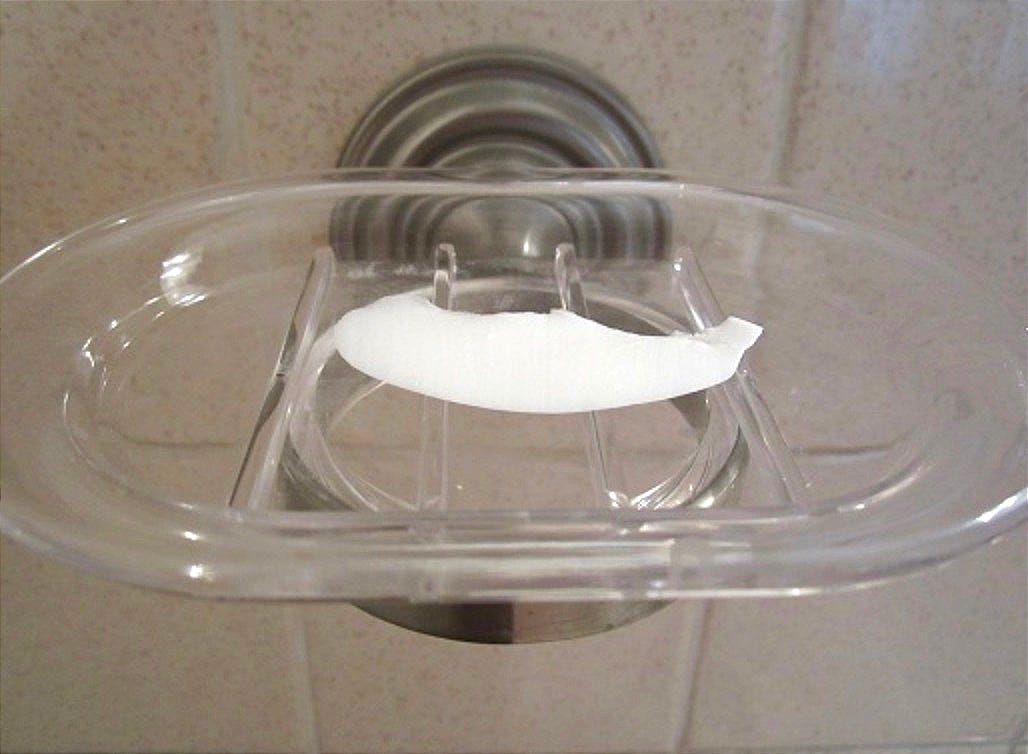
That bar belongs to the active trader who wears it down by incessantly fiddling with their portfolio, buying this, selling that, speculating, etc.
The 'portfolio as soap bar' analogy is a vivid argument against active trading. Just like the soap bar gets worn smaller each time it is handled, a portfolio can shrink or stagnate if we're trying too hard with our investing.
But who can blame us?
In North American society, we are hard-wired to try hard. The idea that "hard work = success" has been engrained in us from birth. And for good reason—it's true in most cases. You'll never become, say, a better guitar player if you don't practice.
But investing is a case where this rule doesn't hold completely true. Meditation is another case.
Don't get me wrong. We won't get anywhere with investing or meditation if we're not working at it—educating ourselves about the market or logging time on the meditation cushion.
The problem arises when we try too hard.
In investing, trying to hard can be:
day-trading
buying and selling options
moving money into and out of the market in response to market trends or speculative prediction ("the sky is falling!")
buying high-fee actively managed mutual funds/ETFs
All of these effortful approaches bring added expense (e.g., trading fees) and opportunity cost, which will mean lagging the market in the long term for most investors.
In meditation, trying too hard mostly looks like self-criticism. I can't count the number of times I've derided myself during a meditation for letting my mind wander or for falling asleep or for scratching that itch on my nose or for having yet another lousy meditation. These are my counterproductive efforts to become a better meditator. But they just leave me frustrated and less likely to sit on the cushion.
I've heard the advice to "drop the practice" or "let go" to deal with the self-judgement that often comes along with a meditation practice. What I take this to mean is "chill out" and don't be so self-serious. I think it is also a call for more self-compassion—to go easy on myself if those negative thoughts do come up. This has helped. My mind in meditation is still a buzz of thoughts, many of them self-critical, but they don't derail me the way they used to.
Dropping the practice can help in investing too. Passive index investing embraces this very philosophy. It eschews all the fancy footwork of active trading and, in the vast majority of cases, creates more wealth for investors compared to active investing.
Warren Buffett, the most successful of all active investors, has repeatedly told non-professional investors to 'drop the practice' over the years.
Like in his 1993 letter to Berkshire Hathaway shareholders:
"By periodically investing in an index fund, for example, the know-nothing investor can actually out-perform most investment professionals. Paradoxically, when ‘dumb’ money acknowledges its limitations, it ceases to be dumb."
And in 2020:
"I think that the people who buy those index funds, on average, will get better results than the people that buy funds that have higher costs attached to them, because it’s just a matter of math."
I'm not sure what Warren Buffett's bar of soap looks like, but it's probably huge.
Good chance yours will get bigger too if you drop the soap and drop the practice.
- The Buddh-i$h Investor
Takehome points:
Think of your portfolio as a bar of soap. The more you handle it, the smaller it becomes.
Trying harder with investing doesn’t guarantee higher returns.


